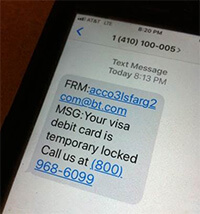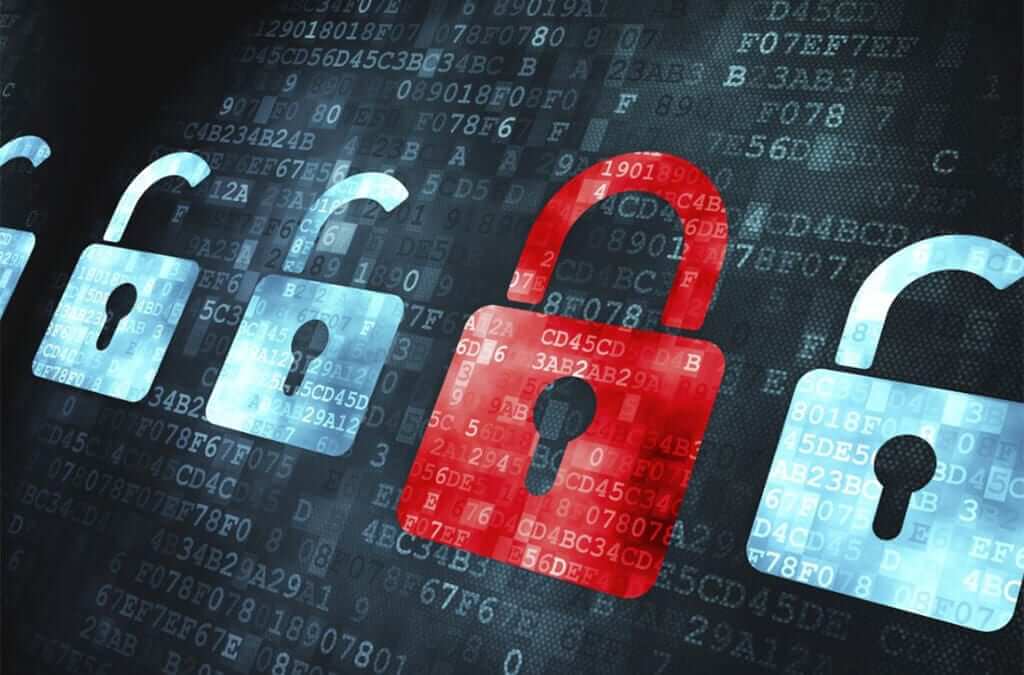What you need to know to avoid scams
Each year, about one in 20 people are affected by fraud issues such as identity theft, impacting their financial security. Criminals use a variety of methods to commit offenses, from phone calls and text messages to emails, websites, and social media platforms. They’ll even steal bills and other documents out of your mailbox or recycling bin. Let’s take a closer look at these crimes and how you can avoid fraud and identity theft.
Phishing
Phishing emails and texts are common types of scams. Phishing is when a person sends a fake email or text to obtain your personal information, such as your bank or credit card account number. The email or text may look authentic, and you may not realize that it’s not actually from your bank, credit card company, or a business-like Amazon.
There are many variations, but a common trick is for the message to state that your payment method has expired and needs to be updated. The link provided is fake, and if you enter a credit card number, the scammers will use it to make unauthorized purchases.


Phone scam
A common phone scam aimed at seniors is a person pretending to be calling from the Social Security Administration. The caller will claim that there’s an issue with your Social Security account and that your benefits have been suspended. They will ask you to verify your Social Security number to reinstate your account and will use the number to create fake bank or credit card accounts.
Although not a direct scam, third-party breaches are another threat to be aware of. These occur when hackers break into a company’s database and steal credit card numbers, health data, or other personal information. They either sell the information to other criminals or use it themselves to commit various types of fraud. Take action if a business informs you that your personal data may have been compromised.
Identity theft
Many scams are attempts at identity theft, targeting your personal information and financial data. Criminals then use this information to withdraw funds from your bank account, make charges to your credit card, apply for credit cards or loans in your name, file fraudulent tax returns, and steal money via various other schemes.
Here are some common signs that someone may be using your personal financial information:
- You’re no longer receiving household bills in the mail. An identity thief may have changed your billing address so you won’t see unauthorized charges.
- You receive an invoice for an item or service that you didn’t buy.
- Your bank or credit card statement shows charges you don’t recognize.
- A small charge that you don’t recognize appears on your credit card statement. You may dismiss it because the amount is so low, but it could be a test charge, and a criminal could use your stolen credit card details later to make a larger purchase.

Protect yourself
Scammers and hackers continually find new ways to steal personal data. The good news is there are steps you can take to protect yourself:
- Watch out for phishing attempts. Be wary of emails, text messages, or phone calls. Never provide your login information, Social Security number, date of birth, or account number to unverified callers or emailers.
- Password-protect your phone and all of your computers. Use strong passwords with a combination of letters, numbers, and special characters.
- Don’t use the same password for different financial accounts. Opt in for two-step authentication from businesses that offer it. You’ll receive a one-time code via email or text message to access your account, and thieves won’t be able to access it even if they have your username and password.
- Sign up for transaction alerts to spot any unauthorized activity immediately.
- Check your accounts to ensure that your bank, credit card companies, and other businesses have your current address and telephone number.
- Sign up for online statements from your bank, credit card companies, and other financial institutions to avoid the risk of mail theft.
- Check your credit report Confirm that there are no new accounts or credit inquiries that you don’t recognize.
- Buy a shredder and shred documents that contain personal information before putting them in the trash.
We’re here to help
Criminals constantly invent new ways to obtain personal information. Increase your awareness of their tactics, protect your personal information, and monitor your financial accounts and credit report to avoiding fraud.
At First United Bank & Trust, we make every effort to keep you and your money safe by ensuring that your personal data remains private. Review our blog regularly for the latest security updates and view our unique products with built-in security benefits, like YouFirst Checking!


